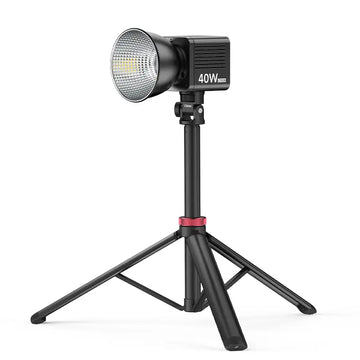-
 Retrouver dansMembres
Retrouver dansMembres Retrouver dansVidéos
Retrouver dansVidéos Retrouver dansChaînes
Retrouver dansChaînes
This website uses cookies to ensure you get the best experience on our website.
To learn more about our privacy policy Cliquez iciPréférence de confidentialité
- Mots clés - #BLOG
-
- Dernière mise à jour 30 septembre 2024 0 commentaire , 66 vues, 0 comme
More in Politics
Related Blogs
Les archives
The Ultimate Guide to Choosing the Right Light Stand for Your Photography Needs
Corps
When it comes to photography, having the right equipment is crucial for achieving the desired results. One of the most important accessories in your toolkit is the light stand. This guide will help you understand the various types of light stands available, their features, and how to choose the right one for your specific needs.

Understanding the Different Types of Light Stands
Light stands come in various shapes and sizes, each designed for specific purposes. Here are some common types:
- Standard Light Stands: These are versatile and can support a variety of lighting equipment.
- Heavy-Duty Light Stands: Ideal for studio settings, these stands can hold larger lights and modifiers.
- Boom Stands: These allow for overhead lighting, providing flexibility in positioning.
- Compact Light Stands: Perfect for travel, these lightweight stands are easy to carry and set up.
Key Features to Consider in a Light Stand
When selecting a light stand, several features should be taken into account:
- Height Adjustment: Look for stands that offer a wide range of height adjustments to suit different shooting scenarios.
- Weight Capacity: Ensure that the stand can support the weight of your lighting equipment.
- Material: Aluminum stands are lightweight and portable, while steel stands offer more durability.
- Portability: If you frequently shoot on location, consider a stand that is easy to transport.
How to Choose the Right Light Stand for Your Needs
Choosing the right light stand can be overwhelming, especially with so many options available. Here are some tips to simplify your decision-making process:
- Assess your shooting style: Are you primarily shooting in a studio or on location?
- Consider the type of lighting equipment you use: Will you need a stand that can support heavy lights or modifiers?
- Think about your budget: There are options available for every price range, so determine what you can afford.
Maintaining Your Light Stand
Proper maintenance of your light stand will ensure its longevity. Regularly check for any signs of wear and tear, and clean it after each use to prevent dust buildup. Additionally, store it in a safe place to avoid damage.
For a wide selection of high-quality light stands, visit  . This resource can help you find the perfect stand to meet your photography needs.
. This resource can help you find the perfect stand to meet your photography needs.
Conclusion
In conclusion, selecting the right light stand is essential for any photographer looking to enhance their work. By understanding the different types available, considering key features, and maintaining your equipment, you can ensure that your lighting setup is both effective and reliable. Happy shooting!







commentaires